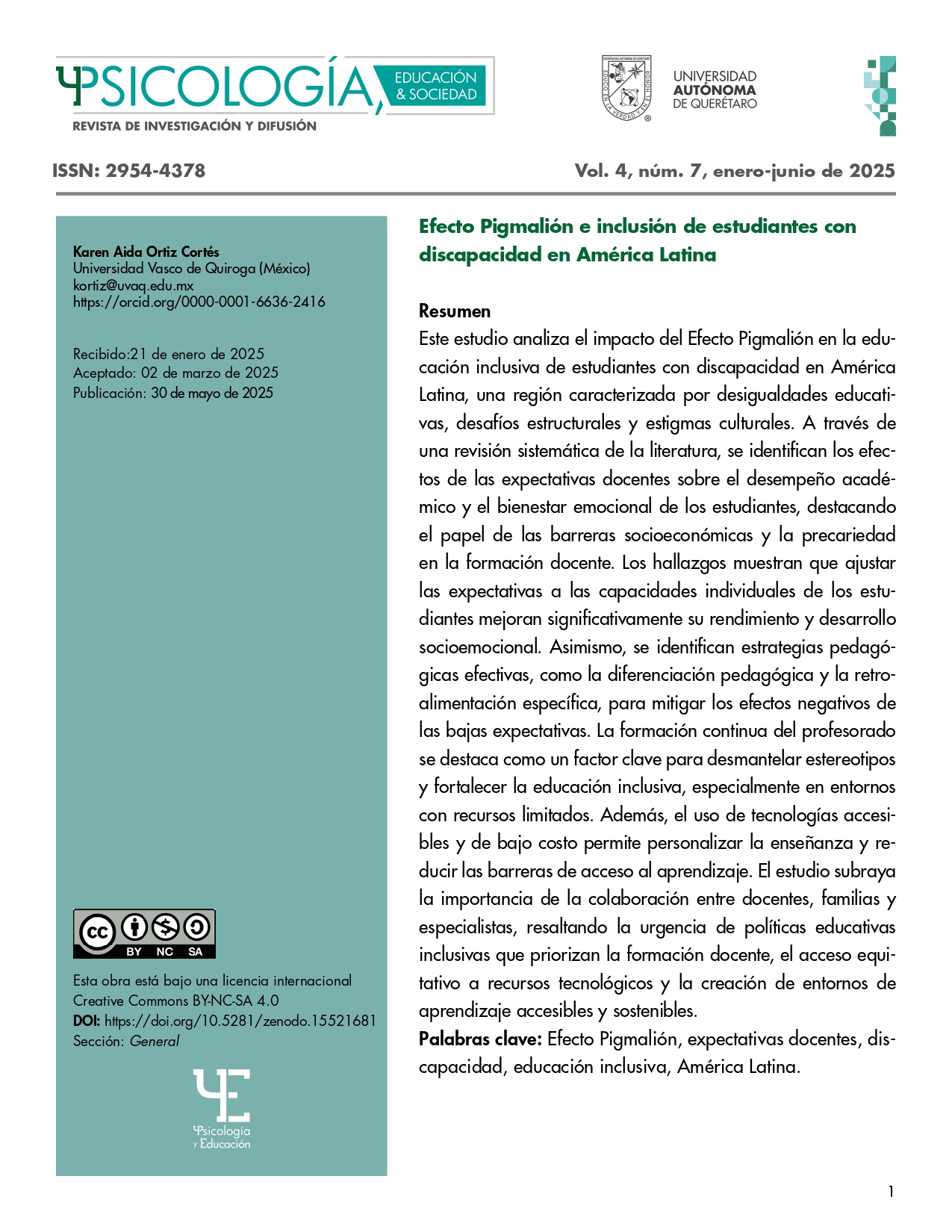Abstract
This study examines the impact of the Pygmalion Effect on the academic and emotional outcomes of students with disabilities in Latin America. In the region, characterized by educational inequalities, structural challenges, and cultural stigmas, teachers’ expectations play a fundamental role. Through a systematic review of the literature, the effects of both high and low expectations are explored, considering socioeconomic barriers and challenging educational contexts. The findings show that adjusting expectations to students’ individual capabilities significantly improves their academic performance and emotional well-being. Furthermore, ongoing teacher training is essential to dismantle stereotypes, foster inclusive practices, and strengthen teacher self-efficacy. Accessible and low-cost technologies also prove to be effective tools to personalize teaching in resource-limited environments. Finally, the study underscores the importance of collaboration between teachers, families, and specialists, highlighting the urgency of inclusive educational policies that prioritize teacher training, access to technological resources, and the creation of equitable learning environments.

This work is licensed under a Creative Commons Attribution-NonCommercial-ShareAlike 4.0 International License.
Copyright (c) 2025 Psicología, Educación & Sociedad

